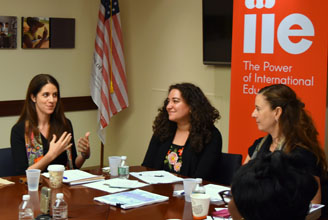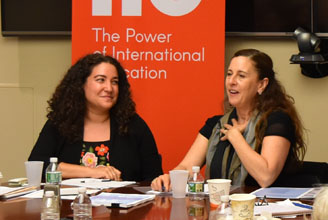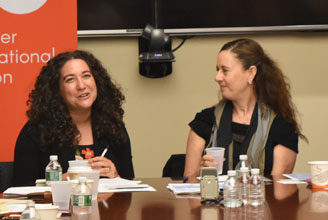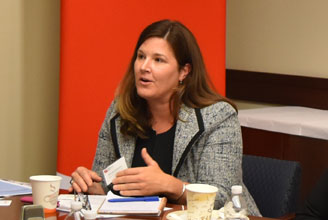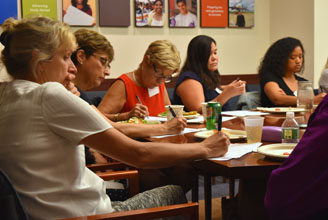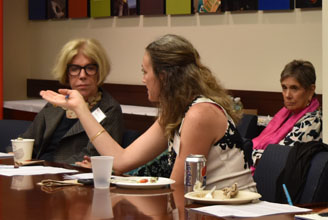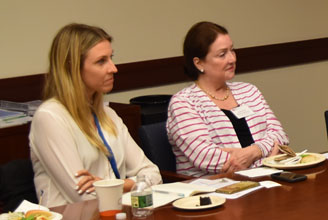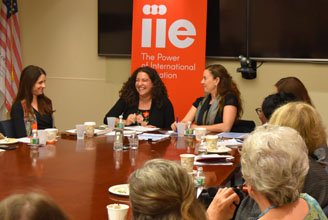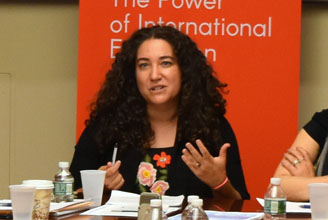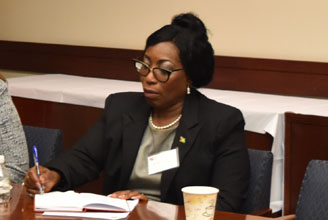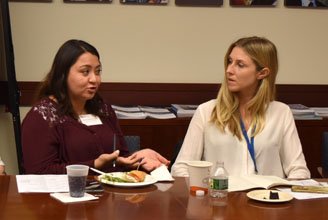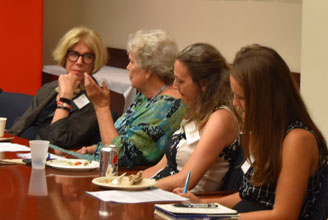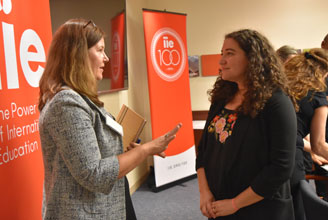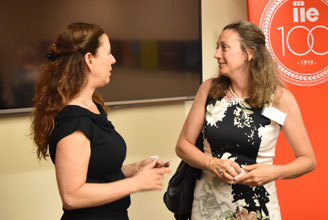|
BEYOND THE HEADLINES
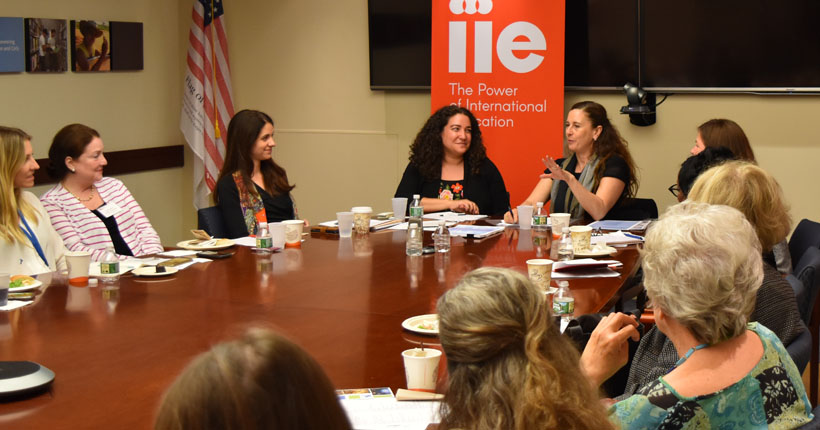
Equity and Empowerment: A Feminist Approach to Aid September 12, 2019 | New York, NY
Randi Davis, United Nations Development Programme
Marcy Hersh, Women Deliver
Co-sponsored by the Institute of International Education
Photos | UNDP Gender Equality Strategy
On September 12, 2019, UNDP Director of Gender Equality Randi Davis and Marcy Hersh of Women Deliver joined the WFPG for a conversation on Equity and Empowerment: A Feminist Approach to International Aid. Gender equality is a critical factor for achieving sustainable peace and development, but women and girls continue to suffer discrimination and violence in every part of the world--especially in the wake of humanitarian disasters and conflict. The roundtable conversation covered how the international community is working to empower women and girls through development, how we can ensure that women are able to play an active role in rebuilding societies and preventing future crises, and which tactics have been successful in aiding women across the globe. The discussion was moderated by WFPG Executive Director Kim Kahnhauser Freeman and co-hosted by the Institute of International Education.
Davis opened the discussion with an overview of global gender equality today. She reflected on the progress made and challenges faced by several UN projects and programs that have major anniversaries within the next year, including ICPD, CEDAW, the Beijing Platform for Action, and UNSCR 1325, among others. While these efforts provide a solid framework for the advancement of gender equality, reality often lags behind. For example, Davis pointed out that the tremendous progress in education has not translated into labor market participation; and even as more women enter the workforce, the wealth gap between men and women continues to widen. She went on to lay out what a feminist approach is: fighting the barriers to women’s economic empowerment on a broad scale; increasing women’s participation in decision-making in all spheres; addressing issues of fragility and supporting women as active agents in crisis situations; and addressing and preventing violence against women.
Hersh offered an analysis of humanitarian aid based on her experience in the field. Overall, current humanitarian efforts are still Western-focused, male-driven, and top-down. She pointed out that meetings are typically conducted in English and held in locations inaccessible to local civil society organizations, who could provide critical insights into programs that are implemented in their communities. She also raised the issue of access to funding. Only 3% of humanitarian aid was directed toward local and national civil society organizations between 2016 to 2018, with no information available on how much went to women-led organizations. During the same period, out of $41 billion allocated to humanitarian funding, only 0.1% went to gender-based violence prevention and response services, highlighting how gender-sensitive programs are still the exception.
Hersh called for a system-wide approach to addressing these inequalities. She explained that since women already fill the vital roles as first responders, service providers, community leaders and resilience builders, funding and decision-making power should be shifted to them and the organizations they lead, a process Women Deliver refers to as “gender transformative localization”. To accomplish this shift, Hersh emphasized that the international community needs to incorporate more tailored funding, meaningful engagement, collaboration between fieldworkers and local organizations, better accountability, and capacity sharing.
Davis and Hersh also covered practical steps to building support for gender equitable humanitarian aid. On the question of how to engage men and boys, Davis and Hersh both suggested demonstrating how gender equality can benefit everyone. Davis explained how UNDP has moved away from binary language entirely, reframing gender equality as something that can help “us” and “our future.” She offered similar advice on changing corporate culture--convince the leadership that there is a business case to be made for gender equality. Nichole Johnson of IIE offered as an example the Verizon Innovative Learning Program, which supports girls studying STEM in India to grow their talent pipeline for their business.
Both Davis and Hersh emphasized the need for more opportunities for women to participate and to be heard, since they are in the best position to identify what needs to be addressed. Hersh highlighted Women Deliver’s Humanitarian Advocates program, which provides women-led civil society organizations with training and speaking opportunities. She noted that when women leaders are able to be heard and recognized for their work, they make a greater impact in their communities.
Read more from our speakers.
|



